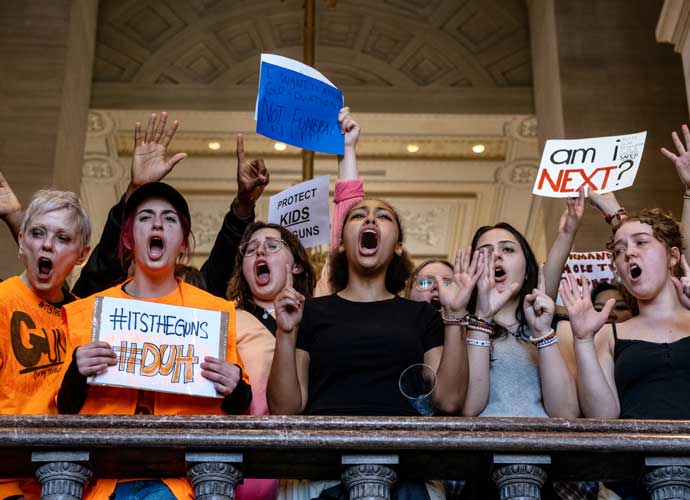GOP Groups In 4 States Forged Election Documents Falsely Claiming Trump Had Won
Groups supportive of former President Donald Trump forged election documents saying he had won Arizona, Nevada, Pennsylvania and Michigan’s electoral college votes. Each of them is strikingly similar, which suggest that the fraudulent documents may have been part of a larger plot. The documents are almost exactly the same, even down to the wording, fonts and spacing.
The forged documents were sent to the National Archives in December 2020 but were rejected. In Arizona’s case, they even forged the state seal.
The National Archives informed the states and sent Arizona Secretary of State Katie Hobbs and Michigan Secretary of State Jocelyn Benson the forged documents later that December.
In Arizona, the group that forged the document was a citizen group headed by Lori Osiecki, who identified herself on the forged document as “of the sovereign citizens’ caucus of the great state of Arizona.”
Subscribe to our free weekly newsletter!
A week of political news in your in-box.
We find the news you need to know, so you don't have to.
“By affixing the state seal to documents containing false and misleading information about the results of Arizona’s November 3, 2020 General Election, you undermine the confidence in our democratic institutions,” Hobbs’ cease and desist letter read.
Legal action for using the state’s seal was taken against the group by the state of Arizona.
There was no legal action taken against the Michigan group because they didn’t use the state seal, but 16 of the signees came from state Republicans such as Republican National Committee member Kathy Brenden, Shelby County Clerk Stanley Grot and State Party co-chair Meshawn Maddock who was elected to the position after signing the fraudulent documents.
Get the most-revealing celebrity conversations with the uInterview podcast!










Leave a comment